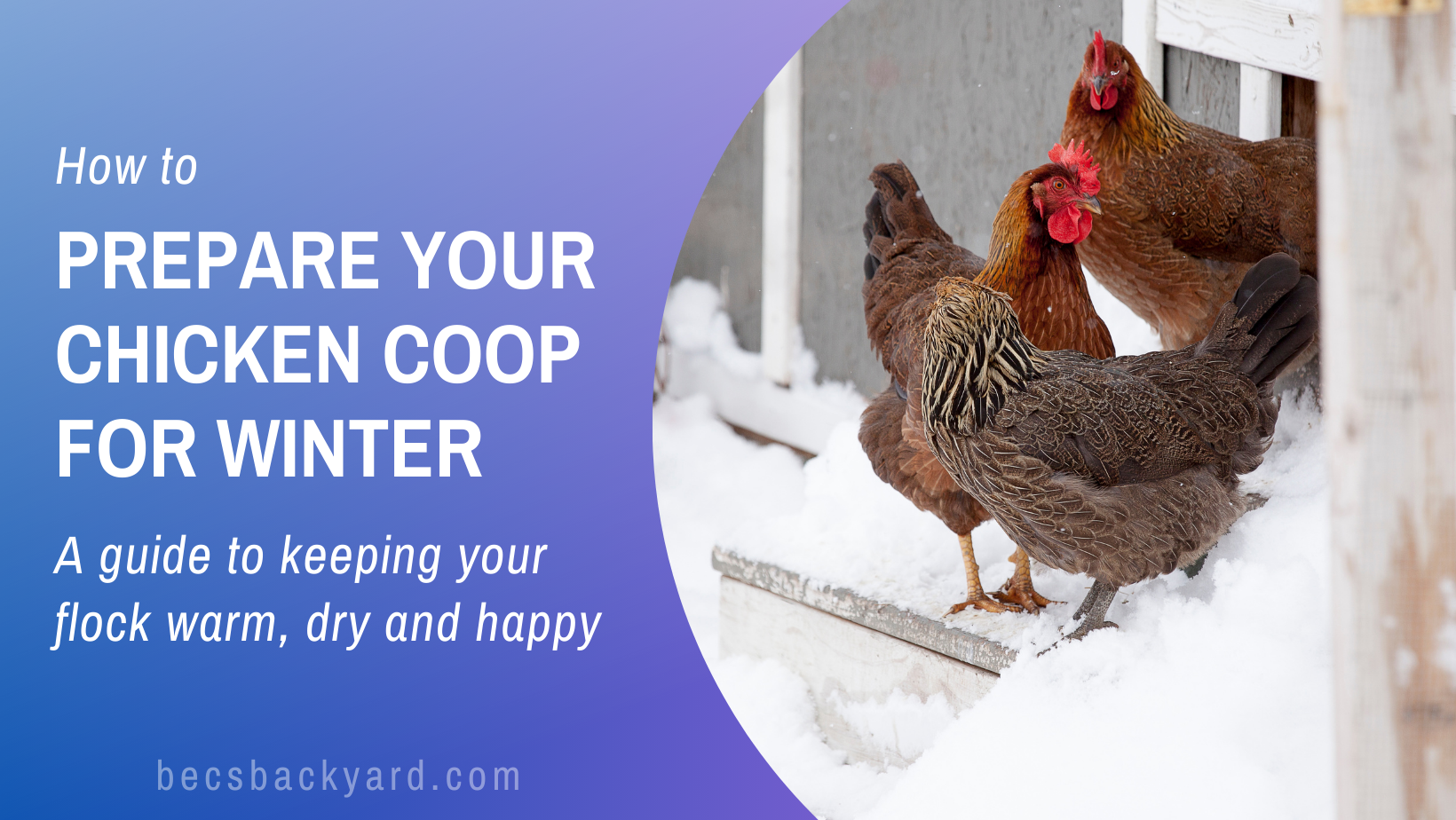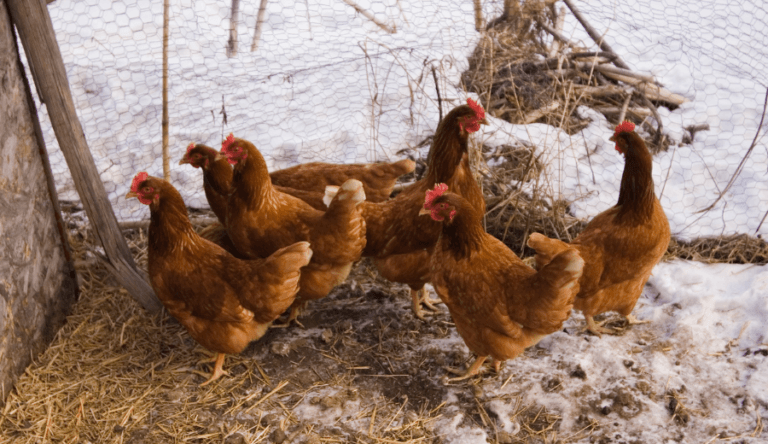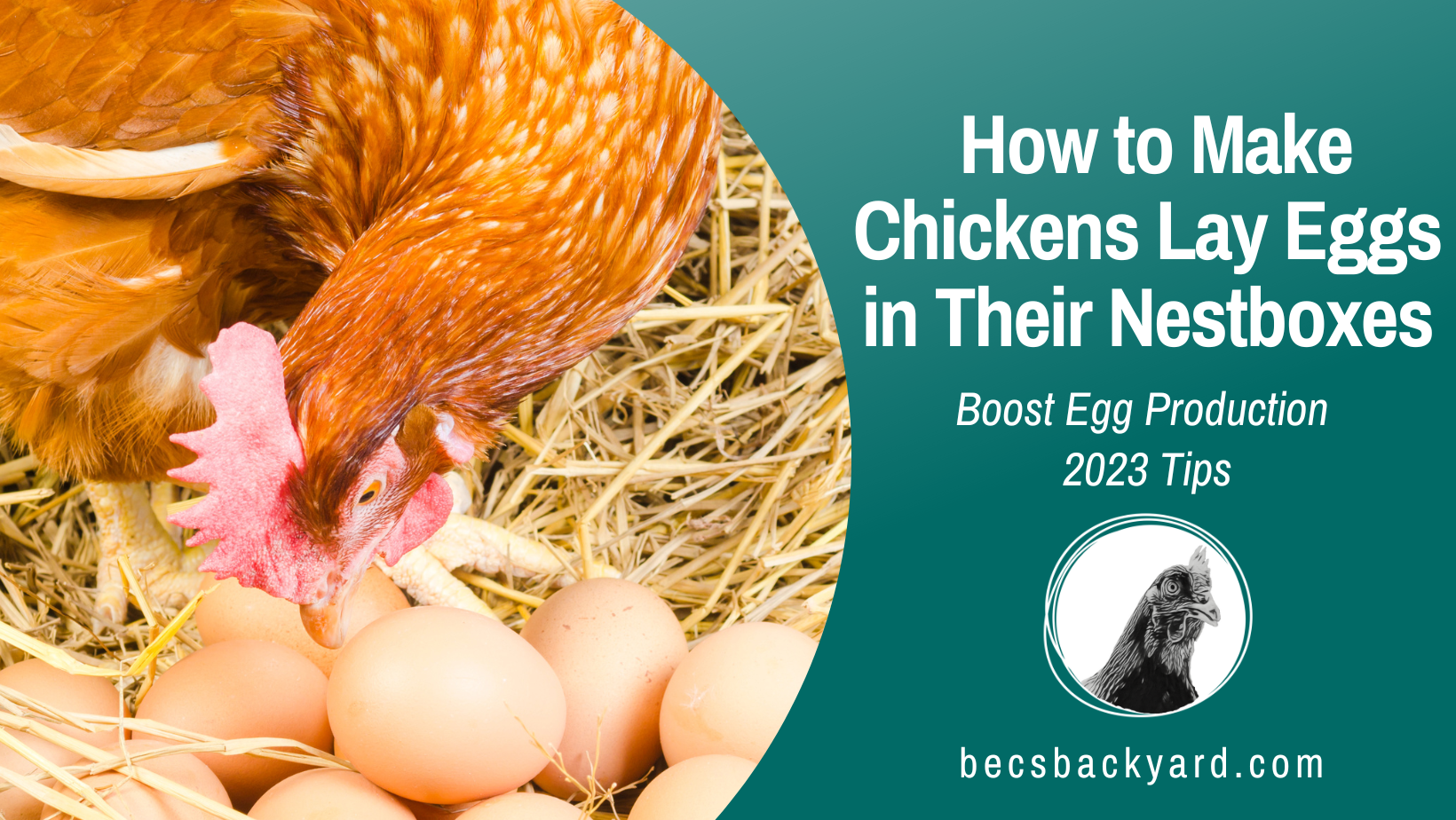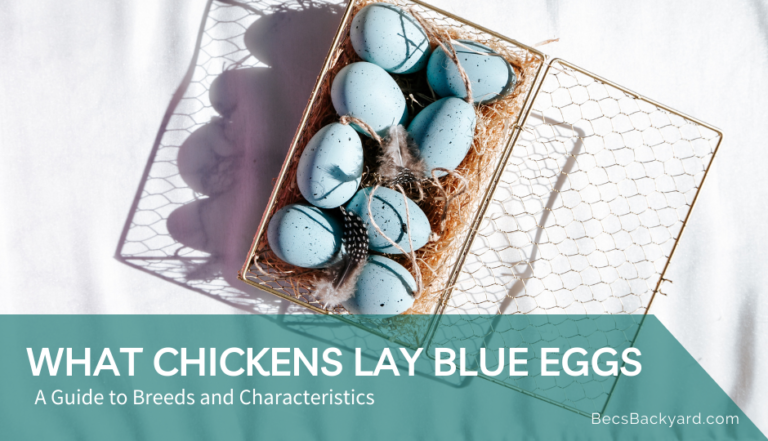How to Prepare Your Chicken Coop for Winter: A Comprehensive Guide
Preparing your chicken coop for winter is essential to ensure your chickens stay healthy and happy during the colder months. The winter season can be harsh on your feathered friends, and it’s important to take necessary steps to protect them from the cold weather. In this article, we’ll cover some tips and tricks to show you how to prepare your chicken coop for winter.
Firstly, it’s important to ensure that your chicken coop is well-insulated. This will help to keep the coop warm and prevent drafts. Insulating the coop can be done by adding extra bedding, such as straw or hay, to the coop floor and walls. You can also add insulation panels to the walls and roof of the coop for extra protection against the cold. Additionally, you can use a heat lamp to provide warmth, but it’s important to ensure that it’s used safely and doesn’t pose a fire hazard.
Secondly, it’s crucial to keep the coop clean and dry during the winter months. Moisture can lead to frostbite and respiratory issues in chickens. Regularly cleaning the coop and removing any wet bedding or droppings will help to keep the coop dry. You can also use a dehumidifier to remove excess moisture from the air. Providing your chickens with fresh water daily is also important, as they need to stay hydrated to maintain their body temperature. By following these tips, you can help ensure that your chickens stay healthy and happy throughout the winter season.
How to Prepare Your Chicken Coop for Winter – Understanding the Needs of Chickens in Winter
Preparing your chicken coop for winter is essential to ensure that your feathered friends stay healthy and happy during the colder months. Understanding the needs of your chickens in winter is the first step towards providing them with the care they need. Here are some key factors to consider:
Cold Weather
Chickens are hardy creatures and can tolerate cold temperatures, but extreme cold can be dangerous for them. Chickens can suffer from frostbite, hypothermia, and respiratory infections in the winter. To keep your chickens safe, make sure that their coop is well-insulated and draft-free. You can insulate the coop with straw, hay, or other materials to keep it warm. A good rule of thumb is to make sure that the temperature in the coop stays above freezing.
Body Heat
Chickens generate a lot of body heat, which can help keep them warm in the winter. However, if the coop is too small or overcrowded, the chickens may not be able to generate enough body heat to stay warm. Make sure that your coop is large enough for your chickens to move around freely and that there is sufficient space for them to roost.
Egg Production
During the winter months, egg production can slow down or even stop altogether. This is because chickens need a certain amount of daylight to lay eggs, and the shorter days in winter can disrupt their laying cycle. To keep your chickens laying eggs, you can provide them with artificial light in the coop. A simple light bulb can provide enough light to keep your chickens laying throughout the winter.
Feeders and Waterers
In the winter, it is important to make sure that your chickens have access to food and water at all times. Chickens need more food in the winter to generate body heat and maintain their weight. Make sure that your feeders are always filled with high-quality feed that is rich in protein. Water is also essential for chickens, but it can freeze in the winter. You can prevent this by using heated waterers or by changing the water frequently throughout the day.
Protein
Protein is essential for chickens in the winter to maintain their body heat and stay healthy. Make sure that your chickens are getting enough protein by providing them with high-quality feed that is rich in protein. You can also supplement their diet with mealworms, which are a great source of protein for chickens.
By understanding the needs of your chickens in winter, you can provide them with the care they need to stay healthy and happy. Keep these factors in mind as you prepare your chicken coop for the colder months ahead.
The Importance of Coop Ventilation
When preparing your chicken coop for winter, one of the most important factors to consider is proper ventilation. Ventilation helps to prevent frostbite, ammonia buildup, and other issues that can arise from stale air and moisture buildup in the coop.
Preventing Frostbite and Ammonia Buildup
Without proper ventilation, moisture from chicken droppings and respiration can build up in the coop, leading to dampness and frostbite on your chickens’ combs, wattles, and toes. Additionally, ammonia fumes can build up and cause respiratory issues for your birds.
To prevent these issues, it’s important to ensure that your coop has adequate ventilation. This can be achieved by installing vents or windows that allow for proper airflow without exposing your birds to direct drafts. It’s also important to regularly clean your coop to remove any buildup of droppings and other debris that can contribute to moisture and ammonia buildup.
Balancing Warmth and Fresh Air
While it’s important to keep your birds warm during the winter months, it’s equally important to ensure that they have access to fresh air. This can be achieved by finding a balance between warmth and ventilation.
One way to achieve this balance is by installing vents or windows in areas where the wind doesn’t directly blow on your birds. This allows for proper airflow without exposing them to cold drafts. Additionally, you can install a hatch that can be used to open or close the vent as needed to regulate the temperature and airflow in the coop.
Overall, proper ventilation is crucial when preparing your chicken coop for winter. By ensuring that your birds have access to fresh air and that moisture and ammonia buildup are minimized, you can help to keep them healthy and comfortable throughout the colder months.
Insulating the Chicken Coop
Insulating your chicken coop is an important step to prepare for winter. It helps to keep your chickens warm and comfortable during the cold months. There are several materials and methods you can use to insulate your coop.
Materials for Insulation
Here are some materials you can use for insulation:
- Plywood: You can use plywood to cover the walls and ceiling of your coop. It helps to keep the cold air out and the warmth inside. Make sure to seal any gaps with caulking.
- Spray foam insulation: Spray foam insulation is a great option for sealing any gaps or cracks in your coop. It is easy to apply and can help to keep the heat inside.
- Straw: You can use straw as bedding for your chickens. It is a great insulator and can help to keep the coop warm. Make sure to change the straw regularly to keep it dry.
- Wool blankets: Hanging wool blankets on the walls of your coop can help to keep the heat inside. They are easy to install and can be removed during the warmer months.
Implementing the Deep Litter Method
The deep litter method is a great way to insulate your coop and provide bedding for your chickens. Here’s how to do it:
- Start by adding a layer of straw or wood shavings to the bottom of your coop.
- Add a layer of chicken manure on top of the bedding.
- Continue to add layers of bedding and manure as needed.
- Turn the bedding regularly to keep it aerated.
- The bedding will start to break down and create heat, which will help to keep the coop warm.
Make sure to keep the deep litter clean and dry to prevent any health issues for your chickens.
Insulating your chicken coop is an important step to prepare for winter. By using the right materials and methods, you can keep your chickens warm and comfortable during the cold months.
Preventing Drafts and Fire Hazards
When preparing your chicken coop for winter, it is important to take steps to prevent drafts and fire hazards. Here are some tips to help you keep your chickens safe and warm this winter.
Using Heat Lamps Safely
Heat lamps can be a great way to keep your chickens warm during the winter months, but they can also pose a fire hazard if not used properly. Here are some tips to help you use heat lamps safely:
- Make sure the lamp is securely mounted and cannot be knocked over by the chickens.
- Use a lamp with a guard to prevent the chickens from coming into direct contact with the bulb.
- Keep the lamp at least 18 inches away from any combustible materials, such as bedding or wood.
- Use a timer to turn the lamp on and off automatically, rather than leaving it on all the time.
- Inspect the lamp and wiring regularly, and replace any damaged or frayed wires immediately.
Eliminating Drafts
Drafts can make your chicken coop feel colder than it actually is, and can make it more difficult for your chickens to stay warm. Here are some tips to help you eliminate drafts in your chicken coop:
- Inspect the walls and roof of the coop for any gaps or holes, and seal them with caulk or weatherstripping.
- Install windows with double panes to help insulate the coop.
- Use thick curtains or blankets to cover the windows at night.
- Use a draft blocker to seal the gap between the bottom of the coop door and the floor.
- Consider using cardboard or feed bags to block any drafts along the walls.
By taking these steps to prevent drafts and fire hazards, you can help ensure that your chickens stay safe and warm throughout the winter months.
Maintaining the Coop in Winter
Cleaning and Maintenance Procedures
Maintaining a clean and healthy coop is essential for your chickens’ health and well-being during the winter months. The buildup of manure and dust can lead to respiratory problems, so it’s important to regularly clean and maintain the coop.
Here are some cleaning and maintenance procedures to follow:
- Conduct a deep clean before winter: remove all bedding, nesting boxes, feeders, and waterers. Scrub the walls, floor, and ceiling with a disinfectant solution. Allow the coop to dry completely before adding fresh bedding.
- Regularly remove manure: remove manure from the coop at least once a week. This will help to prevent the buildup of ammonia and other harmful gases.
- Keep the coop dry: moisture can lead to mold growth, so make sure the coop is well-ventilated and free of leaks.
- Check for pests: rodents and other pests can cause damage to the coop and harm your chickens. Regularly check for signs of infestation and take appropriate measures to eliminate pests.
Using Supplemental Light
During the winter months, the shorter daylight hours can disrupt your chickens’ egg-laying cycle. To encourage consistent egg production, you can use supplemental light in the coop.
Here are some tips for using supplemental light:
- Use a timer: set a timer to turn on the light in the early morning and turn it off in the evening. This will mimic natural daylight hours and help to maintain your chickens’ circadian rhythm.
- Use a red or pink bulb: red or pink bulbs are less disruptive to your chickens’ sleep and can also help to prevent cannibalism and feather pecking.
- Monitor light levels: too much light can cause stress and health problems for your chickens. Make sure the light levels are appropriate for your flock’s needs.
By following these cleaning and maintenance procedures and using supplemental light, you can help to ensure your chickens stay healthy and happy throughout the winter.
Protecting Chickens from Predators
Keeping your chickens safe from predators is crucial year-round, but especially during the winter months when food is scarce. Here are some dos and don’ts to help you protect your chickens from predators:
- Do use hardware cloth to secure openings in your coop. Hardware cloth is a sturdy welded wire that is not easily ripped open, unlike chicken wire which is not predator-proof and better left for the craft cabinet. Make sure even the smallest of holes are secured. If you find weasels killing chickens, check for mouse and rodent tunnels.
- Do use predator-proof locks. Make sure all doors and windows in your coop have predator-proof locks. Raccoons are known for opening latches and doors, so make sure your locks are secure.
- Do bury hardware cloth around the perimeter of your chicken run. This will prevent predators from digging under the fence to gain access to your chickens. Bury the hardware cloth at least 12 inches deep and angle it outwards to prevent digging.
- Do provide your chickens with a safe place to roost. Chickens naturally roost at night, so make sure they have a safe place to do so. Provide them with a sturdy roost that is at least 2 feet off the ground. This will prevent predators from reaching them while they sleep.
- Don’t leave food out overnight. Leaving food out overnight will attract predators to your coop. Make sure to remove any leftover food before nightfall.
- Don’t use chicken wire to secure your coop. Chicken wire is not predator-proof and can easily be ripped open by predators. Use hardware cloth instead.
- Don’t forget to lock up your chickens at night. Make sure to lock up your chickens in their coop at night. This will prevent predators from getting to them while they sleep.
By following these dos and don’ts, you can help protect your chickens from predators during the winter months.
Feeding and Watering Chickens in Winter
When it comes to keeping your chickens healthy and happy during the winter months, proper feeding and watering are essential. Here are some tips to help you ensure that your chickens are well-fed and hydrated throughout the winter.
Preventing Frozen Water
One of the biggest challenges of winter chicken care is keeping their water from freezing. Chickens require fresh, clean water every day, and if their water freezes, they may not get enough to drink. There are a few ways to prevent water from freezing in the winter:
- Heated Waterers: Heated waterers are a great solution for keeping your chickens’ water from freezing. These devices use electricity to keep the water warm, so your chickens always have access to clean, unfrozen water. Check Amazon here for a best seller
- Open Bowls: If you don’t have access to electricity, you can try using open bowls for your chickens’ water. Make sure to check the water often and break up any ice that forms on the surface.
Addressing Food Shortages
During the winter, it can be more difficult to provide your chickens with fresh food. Here are some tips to help you address food shortages:
- Stock Up: Before winter arrives, stock up on chicken feed so that you have enough to last throughout the season.
- Add Supplements: Consider adding supplements to your chickens’ diet to ensure that they are getting all the nutrients they need. Some good options include dried mealworms, sunflower seeds, and cracked corn.
- Provide Kitchen Scraps: You can also provide your chickens with kitchen scraps, such as vegetable peels and fruit scraps. Just make sure to avoid giving them anything that is moldy or spoiled.
By following these tips, you can help ensure that your chickens stay healthy and happy throughout the winter months. Remember to check their water often and provide them with plenty of fresh food to keep them well-fed and hydrated.
Preparing Nesting Boxes and Dust Baths
When preparing your chicken coop for winter, it’s important not to forget about the nesting boxes and dust baths. These areas are essential for your chickens’ health and well-being, and they require some extra attention during the colder months.
First, let’s talk about nesting boxes. You’ll want to make sure they are clean and free of any debris or droppings. A dirty nesting box can lead to health problems for your chickens, and it’s especially important to keep them clean during the winter when your birds will be spending more time inside.
You should also consider adding some extra bedding to the nesting boxes. This will help keep your chickens warm and cozy during the colder months. You can use straw, hay, or even shredded paper for bedding. Just make sure to change it out regularly to keep the nesting boxes clean and dry.
Next, let’s talk about dust baths. Dust baths are essential for your chickens’ hygiene, and they can help prevent mites and lice. During the winter, your chickens may not have access to the same dry, dusty areas they have during the warmer months, so it’s important to provide them with a designated dust bath area inside the coop.
You can create a dust bath by filling a shallow container or box with sand, dirt, and wood ash. Your chickens will instinctively know what to do and will start taking dust baths on their own. Just make sure to keep the dust bath area clean and dry, and add extra sand or dirt as needed.
In summary, preparing your nesting boxes and dust baths for winter is an important part of getting your chicken coop ready for the colder months. Keep them clean, add extra bedding, and provide a designated dust bath area to ensure your chickens stay healthy and happy all winter long.
An Additional Tip for Winter Well-Being
When it comes to preparing your chicken coop for harsh winters, there are a few additional tips you can follow to ensure your feathered friends are cozy and comfortable throughout the season. Here are two tips that backyard chicken owners swear by:
Applying Petroleum Jelly
Petroleum jelly is another handy tool for keeping your chickens healthy and comfortable in the winter. This versatile product can be used to protect your birds’ combs and wattles from frostbite, which can occur when the temperature drops below freezing.
To apply petroleum jelly, simply rub a small amount onto your chickens’ combs and wattles. The jelly will provide a protective barrier that helps trap heat and prevent frostbite. Be sure to reapply the jelly every few days, especially if your chickens are spending a lot of time outside.
By following these additional tips for winter well-being, you can help ensure that your chickens stay healthy and happy all season long.
Frequently Asked Questions
DIY insulated chicken coop ideas
If you are looking for a DIY insulated chicken coop, there are several options available. You can use materials such as foam board insulation, bubble wrap, or even recycled denim insulation. Make sure to use non-toxic materials and avoid any potential fire hazards.
How to draft proof a chicken coop
Draft-proofing your chicken coop is important to keep your chickens warm and healthy during the winter. You can use caulking, weatherstripping, or even old towels to seal any gaps or cracks in the coop. Make sure to also check for any leaks in the roof or walls and fix them promptly.
Inexpensive ways to insulate chicken coop
Insulating your chicken coop doesn’t have to be expensive. You can use materials such as straw, hay, or even shredded paper to provide insulation. Make sure to replace the bedding regularly to keep it dry and clean.
What to feed chickens in winter
In the winter, chickens require more calories to maintain their body temperature. You can feed them a mix of grains, seeds, and vegetables to provide the necessary nutrients. Make sure to also provide them with fresh water and avoid feeding them frozen or cold food.
Best bedding options for chicken coop in winter
The best bedding options for chicken coop in winter are materials that provide insulation and absorb moisture. You can use straw, hay, wood shavings, or even shredded paper. Make sure to replace the bedding regularly to keep it dry and clean.
Safe ways to heat chicken coop in winter
Heating your chicken coop can be dangerous if not done properly. It’s best to avoid using space heaters or heat lamps as they can be fire hazards. Instead, you can use heated waterers or even a heated perch to keep your chickens warm. Make sure to also provide proper ventilation to avoid any carbon monoxide buildup.







